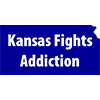 (April 11, 2025) – Today, the Kansas Fights Addiction Grant Review Board met, chaired by Pat George.
(April 11, 2025) – Today, the Kansas Fights Addiction Grant Review Board met, chaired by Pat George.
The committee received an update from the attorney general's staff, who reported receiving the Kroger settlement funds since the last meeting and anticipate funding coming in soon. They are monitoring the Walgreens situation to get ahead of any possible disruptions in payments. Staff reported that the Purdue bankruptcy plan was put on file, has started, and is moving, but no anticipated date of funds being received is available. Staff reported they are monitoring to see if market disruptions may interfere with payments or needed changes since settlement payments are on different timelines. Staff flagged for the board that they are holding a municipalities conference on April 18 with more than 100 registered. Registration for virtual attendees is still open.
The Sunflower Foundation reported that one grantee that was awarded previously has had to decline their award. They had to close their SUD program.
The committee reviewed the needs assessment with the Kansas Center for Public Partnerships and Research. The needs assessment highlighted that CPPR connected with more than 2,000 Kansans and moved 70 data sources. The committee saw a substance abuse domain map to mark treatment experiences available throughout the state. The map suggested there are fragmented and inconsistent referral pathways that make it more difficult for the people who are working with these patients. The committee heard more about the individual patient journey and interactions with law enforcement and other outside influences. It also highlighted the lack of connection between mental health care and substance abuse.
The committee also reviewed the following:
- Vision
- SUD is viewed with compassion as a preventable chronic disease
- Intervention and ongoing support, as well as timely access to care locally, are critical
- Creating a collaborative SUD ecosystem
- Tenets
- Individual Values determine selected approaches
- Community environments anticipate and respond to the needs of children and youth
- Interventions are flexible and evidence-based
- Accessibility to SUD systems is broadly defined and a universal right
- Recognized as a public health concern rather than an individual concern
The committee heard information about each geographic, demographic and other factors influencing addiction.
The committee also heard concerns about how treatment coverage impacts access to care. The report highlighted that commercial payors cover only 38 percent of all people receiving treatment in Kansas, with a significant population on Medicare struggling with opioid and alcohol abuse. The report highlighted that there are limited flexible programs for inpatient care, medical detox is rarely available, and medications for opioid use disorder are less than 4 percent of all people, while Medicare patients show the highest drop-out rate of treatments.
The committee heard that two-thirds of SUD programs in Kansas are funded through federal funding and are primarily focused on crisis intervention. The presenters highlighted the need for more steady funding for services and increased coverage needs through policies such as Medicaid expansion.
The committee discussed key priorities, including:
- Increased funding for prevention
- Harm reduction such as naloxone distribution, fentanyl test strips, peer outreach, overdose surveillance, community resources, drug testing sites and syringe service programs
- Workforce investments are needed for retention and training
The committee recommendations were reviewed, including:
- Structured Community Engagement:
- Engage adjacent healthcare settings in SUD screening and treatment
- Establish integrated data collection and reporting system
- Reduce Stigma
- Facilitate opportunities for involvement of lived experiences in telling of stories
- Participate in stigma reduction efforts
- Local training
- Efforts reinforcing SUD as a preventable, treatable, chronic health concern
- Prevent Substance Use and Adverse Outcomes
- Implement prevention services at 3 levels: Direct programming, family-centered care, developing champions
- Further systematize distribution of naloxone and drug test strips
- Provide consistent and effective treatment
- Establish consistent statewide use of medical detox and medications for opioid use disorder
- Provide pertinent local-level professional development programs
- Engage pharmacies and rural hospitals to expand treatment and recovery services
- Sustain treatment gains and strengthen social connectivity
- Expand housing and transportation programs
- Provide practical supports for individuals’ daily challenges and skill development
- Engage service providers to map care linkage needs and bridge connection gaps
- Proactively include sustainability factors in community planning
- Develop common collaboration strategies throughout the state for local and statewide efforts
- Establish overlapping learning collaboratives
- Support recovery-friendly work environments
The committee will meet again but no date was set.